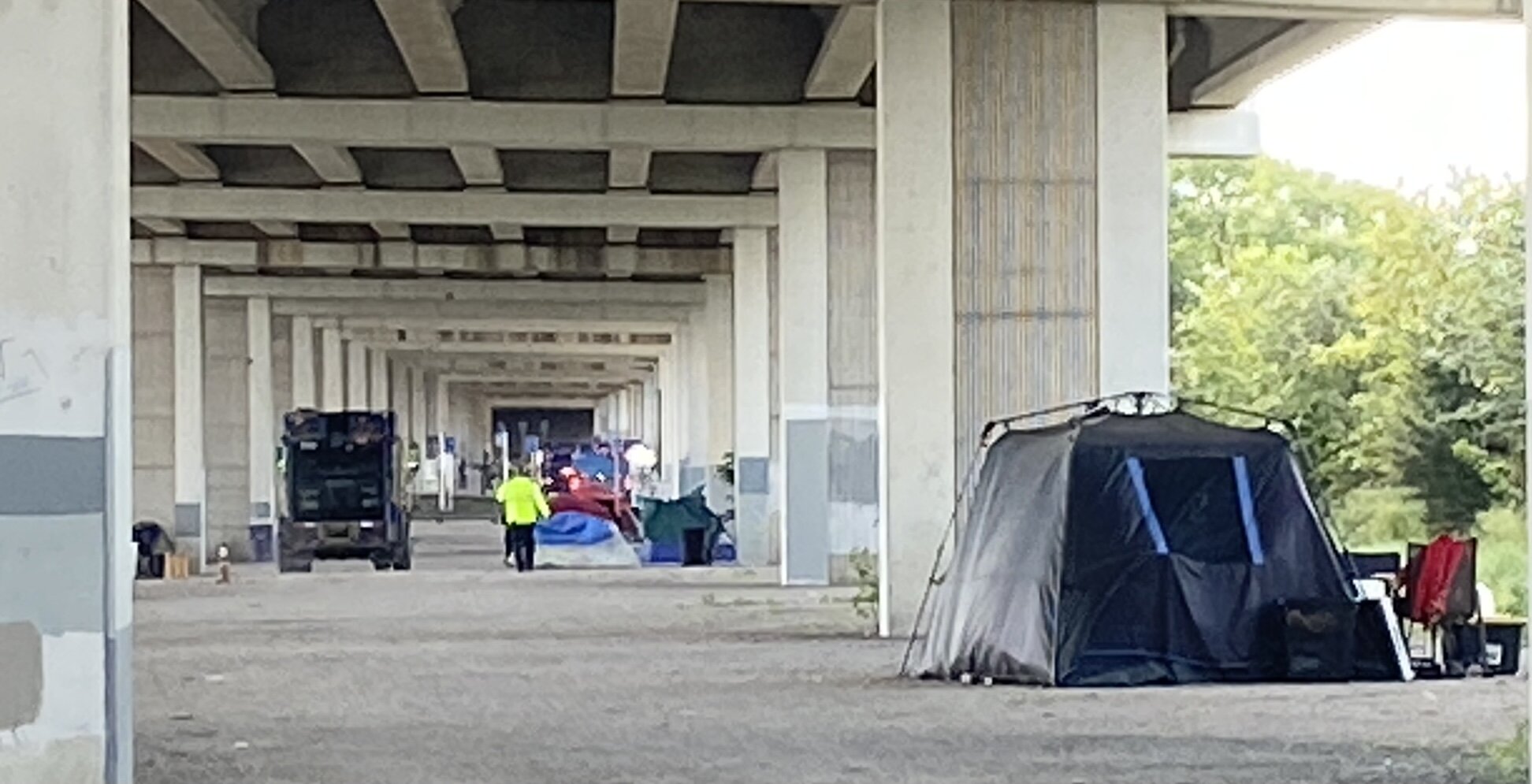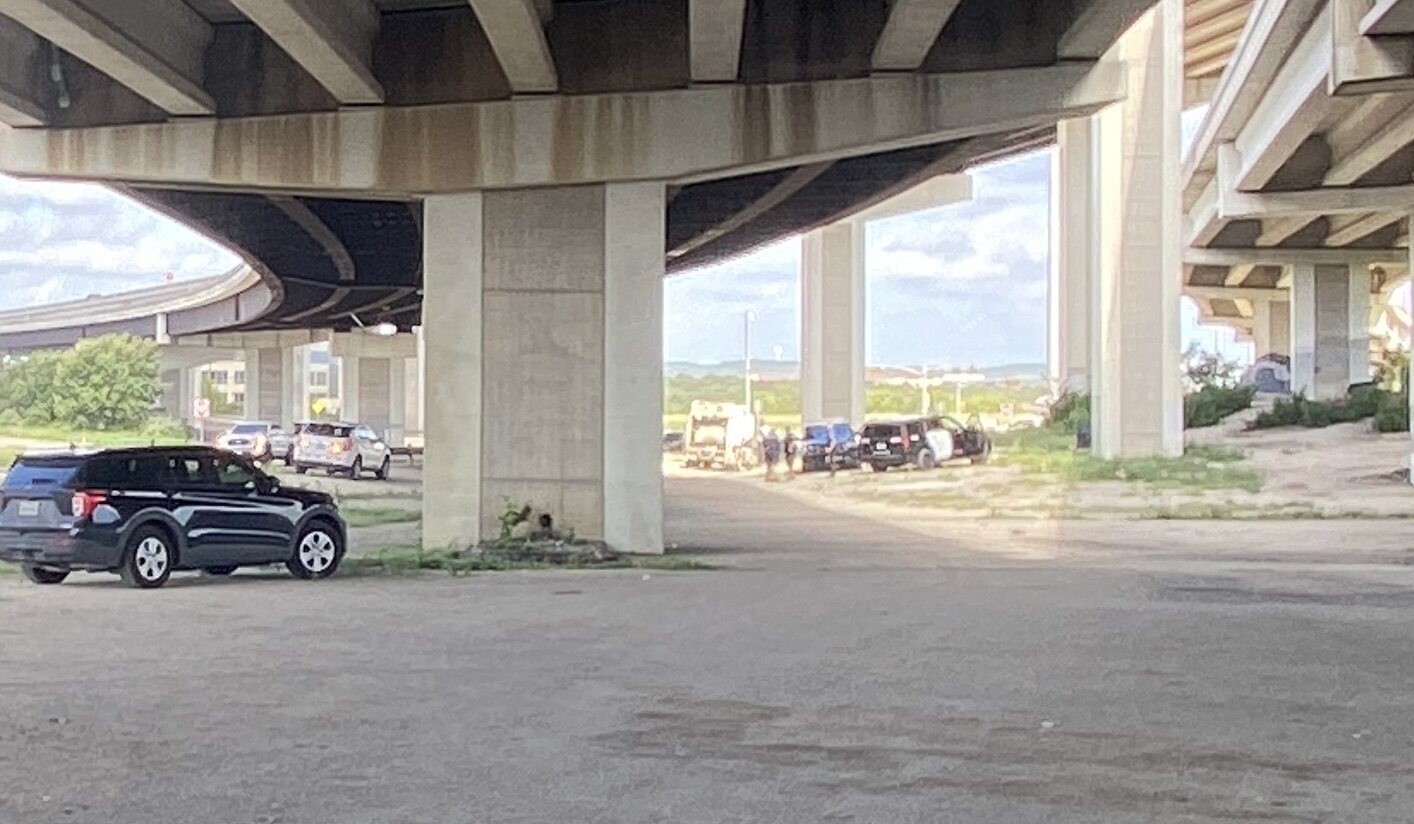“They’re just trying to live their lives!”
Last week, I (Christina) was driving to Target for the first time since the girls got back from their time in Illinois. I only had Kristin, our nine year old, with me and as we came upon a familiar area where many unhoused people typically camp she said, “I don’t want to look, Mom.”
But I knew she wanted to look because she looks every single time. She talks about how she wishes she could help them and hopes they’ll be our neighbors one day, so they don’t have to live on the streets.
Before I could tell her, “You mean, you don’t want to feel sad when we see them?” she gasped.
“No one is there! Where are they?” she exclaimed.
I had forgotten for a minute that since the passing of Prop B this past spring, the city is no longer allowing these folks to congregate in their typical locations. We hadn’t talked to the girls about the proposal’s passing, but this was obviously the moment to have the conversation.
She went on, “What happened? Where is their stuff?”
So slowly, and at a level that I hoped she could understand, I began to explain the politics of homelessness.
“We got to vote last spring to decide if people could stay there with their stuff, and the vote said they can’t, so they have to find a new place to sleep. Hopefully, they were able to take some of their stuff with them.”
“What? Why would they make them leave?”
“If they try to stay there, they could be arrested because it’s against the law to stay in that area now. People voted to change things and they want the area to be cleaned up. I don’t fully know why people voted to have them move. Maybe some people thought it wasn’t safe.”
“What? They’re just trying to live their lives!”
We enjoyed our time at Target and got back into the car.
A few minutes into the drive home she said, “Mom, tell me everything you know about what happened to the people,” so we continued talking.
When we got home, she wanted to immediately tell her sister, who was equally shocked and sad. We processed together more in the coming days, but her initial words have stuck with me.
They’re just trying to live their lives…
While driving into town yesterday, I (Dustin) noticed a cluster of garbage trucks and police SUVs near a homeless camp underneath a highway. I immediately felt my heart drop because of a recent bill that passed in Austin making it illegal to “camp, sit, or lie” around town. I thought, “Crap. Today’s the day they enforce Prop B.” I saw two disheveled men walking down the sidewalk and feared they may have just lost their homes.
(Some of our downtown unhoused neighbors have caseworkers, access to resources, show up to jobs and still can’t afford housing since a recent study determined a minimum wage worker would need to work 129 hours/wk to afford a 1-bedroom apt in Austin. Community First! Village is an excellent resource and safe haven for almost 300 folks, but unfortunately, Austin has over 3200 people currently experiencing homelessness.)
I pulled into the nearest parking lot because I felt compelled to see what was going on. I saw at least 6 police vehicles, a couple garbage trucks, and a half dozen people in reflective vests walking through the tent area. I walked across the street to get closer.
I saw a man sleeping in front of a tent. I saw some officers talking with each other, and in the distance I saw a more populated area where they seemed to be throwing things away. I approached two officers nearby. “Is today the day?” “Well,” they responded, “we are just trying to reduce the footprint today and reminding people to start clearing out of the area.” I could tell this was a PC answer to a topic that has had quite a bit of hype lately. So, I decided to show my cards. “I live at Community First and never liked Prop B. Everyone agrees there is a problem, but punishing people for being in a rough season of life isn’t the answer.”
One of the officers softened and shared a story about how he has seen hard times himself and doesn’t blame these folks. I mentioned it must be a tough job to have to enforce rules on such a complex, dehumanizing, messy situation. I said something like, “I wish the bill would’ve included more proactive measures like earmarking money to rehouse people.” And then the other officer said, “The money’s there. That’s not the problem.” I responded, “It’s just the will.” And he said, “Exactly,” and touched my forearm.
“Why couldn’t this just be approved as an encampment area? It’s huge and they probably aren’t going to use it for anything else.” (That’s one of the current strategies—to designate 2-4 places that are legal camping spots) “A few of my friends lived at the Esperanza Community before coming out to Community First.”
The first officer spoke up. “I’ve talked with Alan Graham about this before. What do you think about the Esperanza Camp?”
“I’ve been there a few times,” I said, “and I’ve heard them tell stories. It seems like the way it was started was really bad. Concentrating trauma and poverty along with addiction and such. Though The Other Ones Foundation has done a lot of work to get resources out there and increase dignity.”
He responded, “See, that’s what I thought. I don’t think the camps are going to work out in the long-term. Speaking from my experience from my people, putting a bunch of people in poverty together without resources doesn’t help them get out of that cycle.”
A third officer walked up. The main officer said, “Hey, thanks for talking with us today.” And I could tell by body language that it was time to move on. I said, “Thanks for staying tender to the humans out here while you’re asked to do an impossible task. I can’t imagine what that’s like.”
The whole interaction was incredibly touching. I don’t often approach officers. I don’t often walk into encampments. But I got to connect with two big-hearted officers whose duty is to carry out the will of the people. And they are trying to do so with as much compassion and care as they can.


